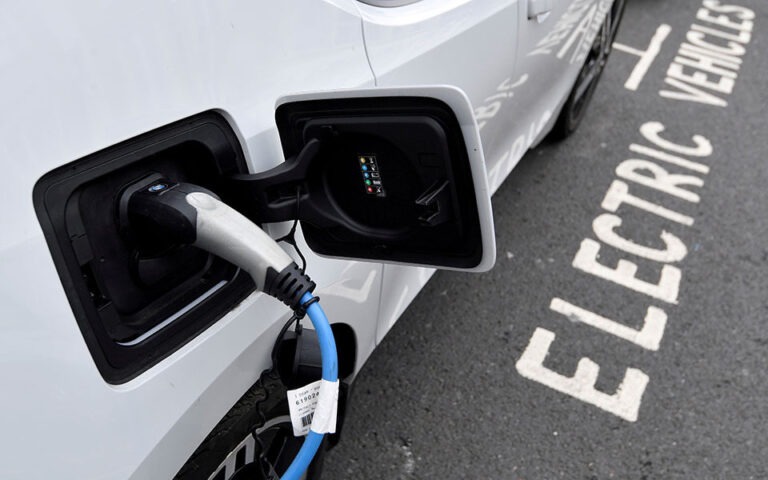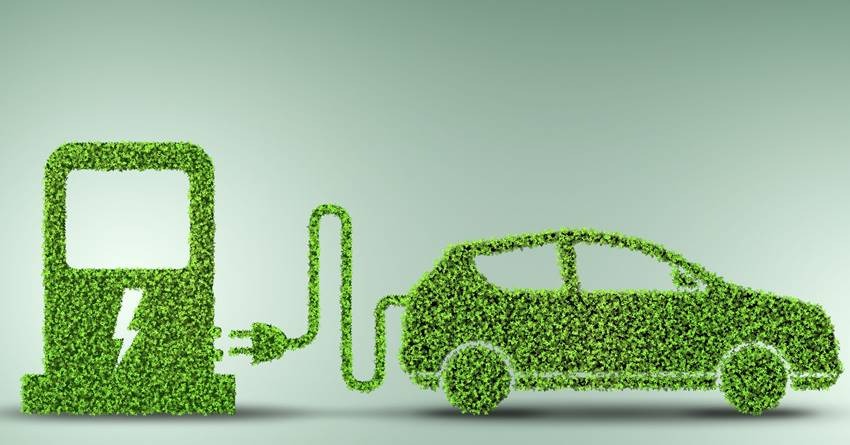Filenews 6 June 2023 - by Evagoras Prokopiou
The who's who in car dealerships
The pandemic suffocated the new car market, especially in 2020, and before it could recover came a second blow, this time from the effects of the Russian invasion of Ukraine. Although in 2021 interest seemed to return, especially in Cyprus, with increased orders, registrations were fewer. The shock from the shortage of raw materials delaying production that started in 2021 remained in 2022 as well. The normalization is set by experts in 2024 and is a major bet for motor vehicle importers in Cyprus. But the top challenge for the automotive industry is the successful transition of the market to the new era of electromobility. However, Cypriot companies seem ready and are throwing more and more models that meet the requirements of the green European transition into the battle. After the recent conclusion in the European Union, which has set the goal of drastically reducing car exhaust emissions by 2035, it is now a one-way street
THE EUROPEAN 'GREEN IMPERATIVE' FOR MOBILITY
On the one hand, the ecological sensitivity for cleaner modes of transport and, on the other hand, the ever-increasing trend to find solutions in the field of energy production and consumption in general, are now changing the data in cars as well. Traditional petrol and diesel engines seem to be slowly giving way to less polluting types with the somewhat "pressing" encouragement of the European Union for the green transition. Several cities abroad have already imposed a ban on the use of diesel engines or gasoline vehicles in their centres, while large incentives are granted by governments. The ambassadors of the 27 European Union countries approved in March the abolition of thermal engines in new cars from 2035, as Germany lifted its veto in exchange for the introduction of an exemption for synthetic fuels produced in the future. The text stipulates that new cars will emit zero CO2, which de facto bans cars with petrol engines, the Swedish presidency of the European Union has announced.

THE BIG TURN BY THE DRIVERS
At the beginning of 2023, the then Minister of Transport, Yiannis Karousos, announced that Cyprus exceeded its targets for the registration of electric vehicles in 2022, which was based on European Union directives. Although 2022 saw the big shift by Cypriot drivers to the electric and hybrid vehicle market, the beginning of 2023 shows this trend growing and consolidating. Specifically, registrations of hybrid and electric vehicles recorded a significant increase during the first quarter of 2023, compared to the corresponding period of 2022, according to the latest data from the Statistical Service of Cyprus.
Passenger saloon car registrations increased to 8,264 and by 29.5% in the first quarter of the year, compared to 6,382 in the first quarter of last year. Of the 8,264 registrations, 4,879 were for diesel vehicles, 906 for diesel vehicle registrations, 213 for electric vehicles and 2,265 for hybrid vehicles. In the corresponding period of 2022, diesel passenger saloons amounted to 4,195 and diesel to 709. The EVs were just 77 and the hybrids 1,399.
€3.7 MILLION FOR RECHARGING POINTS
Investments in the field of services for electromobility are also strengthened to a certain extent through the grant scheme of the Ministry of Transport, Communications and Works for the installation of 1000 recharging points for electric vehicles "Electromobility with 1000". It is a project that will be implemented in two phases and has a total budget of €3.7 million. The application period for phase 1 expired on April 30, while phase 2 will be launched at the end of 2023. The plan provides funding at a rate of 50% of the total cost, with a maximum amount of funding depending on the maximum power output of the charger. It is noted that charging points that will be installed in mountainous areas will receive an increased grant rate of up to 55%, with funding ceilings remaining unchanged.
Beneficiaries of the scheme are natural and legal persons (Companies, Associations, Foundations), Non-Governmental Organizations, legal entities governed by public law, Local Government Authorities that are owners or tenants of a "parking space for public use" and operate in areas under the control of the Republic of Cyprus. The eligible installation points are, inter alia, parking spaces for public use, municipal and community car parks, private parking spaces for the public, petrol station areas, recharging station areas. Each beneficiary may receive a grant for four recharging stations, per district, with a maximum of fifteen throughout Cyprus, with the exception of local authorities which may receive a grant to install up to eight stations within their territory.
Among other things, the big companies that maintain gas stations on the island are also entering the game of electric car charging stations, led by the company Petrolina Holdings Public that announced the installation of the first state-of-the-art fast charging charger for electric vehicles, at its service station in the GSZ area in Larnaca. Other companies in the field have also made announcements and plans in this area.
AGREEMENT IN THE EU AND ON INFRASTRUCTURE
The European Union has reached an agreement between the European Parliament and 27 member states to immediately expand its network of electric chargers and hydrogen filling stations in the coming years in order to facilitate the transition away from internal combustion engines. The agreement includes electric vehicle charging stations at least every 60 kilometres across the 27 member states' main road network until 2026, while for trucks the corresponding distance will be every 120 kilometres – in this case 2028.
By 2031, hydrogen refuelling stations should be in place at least every 200 km. The agreement comes in the same week that a compromise was reached under which all new cars sold in the EU from 2035 will be zero-pollutant. The significant lack of charging infrastructure is considered one of the key factors holding back the transition towards climate-neutral mobility.

CYPRIOTS WANT OUR CAR
In Cyprus, water entered the groove regarding the big green turn, but at the same time, new research reveals the countries in Europe with the highest rate of car ownership per person with our country ranked 3rd. Specifically, the survey confirms that the Cypriot wants his car. Cyprus ranks third among European countries in every thousand inhabitants, 645 are car owners.
In first place is Luxembourg with 681 per thousand inhabitants owning cars. Italy follows in second place with 663 per thousand inhabitants owning a car. The confused.com study took data from 29 European countries on the number of registered passenger cars per 1,000 inhabitants, to reveal the countries with the highest number of cars per capita.
Top 10 European countries with the most cars per person (cars per thousand citizens)
1. Luxembourg 681
2. Italy 663
3. Cyprus 645
4. Poland 642
5. Finland 642
6. Estonia 598
7. Malta 597
8. Germany 574
9. Austria 562
10. Slovenia 556
PREFERENCES IN THE PRESS
Cypriots seem to have consistent preferences in certain car sizes, especially at a time when the use of the car beyond comfort, speed and model, is also related to fuel economy. The analysis of the data of the Statistical Service shows that Cypriot buyers show a preference for cars with a medium displacement engine, but there are also preferences for buying larger vehicles.
The Statistics data show that of the total new vehicle registrations in 2022, 8,465 have an engine displacement of 1,400 -1,599 cc, 8,245 cars have an engine of 1,000-1,399 cc and a displacement of 1,600-1,799 cc have 1,273 cars. In the largest car displacement category, from 1,800 – 1,999 cc the registration number of vehicles was 4,848. The number of cars with a displacement of 2,000 -2,499 cc was 2,341, from 2,500 – 3,999 cc it was 1,501 in 2022 and over 4,000 cc car registrations reach 834. The main suppliers of motor vehicles in Cyprus in 2022 were Japan (38,6%), Germany (13,3%), France (9,2%), United Kingdom (5,4%) and South Korea (4,9%)
THE WHO'S WHO AT CAR DEALERSHIPS
Like all sectors of commerce, the automotive sector began to get back on its feet and settle down in its new form, with the most recent change concerning the HONDA Cyprus dealership, which passed to Galatariotis Motors Ltd. In the last five years, after some significant changes and additions, the map of motoring on the island has been settled.
THE AUTOMOTIVE MAP AS IT WAS SHAPED
1. CHAR. PILAKOUTAS LTD - BMW, MINI, ROLLS ROYCE, BMW
Motorrad
– Cyprus Premium Automobiles Ltd - JAGUAR, LAND ROVER
– New Nissan Cyprus Ltd - NISSAN
– Char. Pilakoutas Auto Alliance Limited - RENAULT, DACIA, MITSUBISHI MOTORS
2. A. I. MOTOKINISI GROUP - PORCHE
3. UNICARS - VOLKSWAGEN, SEAT, SKODA, AUDI,
LAMBORGHINI, CUPRA
4. E-CARS MODENA - MASERATI
5. MOTOTREND LTD - FERRARI, LOTUS
6. F.L.C.P. AUTOMOBILE LIMITED - BENTLEY
7. A. LUTSIOS - ISUZU, KIA MOTORS
8. A. TRIKOMITIS - SUZUKI, SSANGYONG
9. CIC - MERCEDES, SMART
10. CIC AUTOMASTERS - ALFA ROMEO, FIAT, JEEP, ABARTH
11. CTC AUTOMOTIVE - VOLVO, HYUNDAI
12. DICKRAN OUZOUNIAN CO.LTD - TOYOTA, LEXUS
13. GEO PAVLIDES AUTOMOTIVE - OPEL, CITROEN, MAZDA, SUBARU, PEUGEOT
14. MICHAELS AUTOMOTIVE LTD - FORD
15. GALATARIOTIS MOTORS - HONDA
16. MICHAELS ELECTRIC CARS - MG
17. NEW NISSAN CYPRUS - NISSAN
WHAT THE DECADE WILL BRING
Despite the excitement around electric cars, we're still halfway to their dominance. In fact, hybrid models will dominate the electrified part of the world's roads for a significant period of time.
The biggest challenge for the automotive industry in the next decade is the successful transition of the market to the new era of electromobility. More generally, electrification (along with autonomous driving) is considered the next big things in the automotive industry. Lower operating costs, savings in road tax, freedom of movement within the ring of major cities and environmentally friendly technology are increasingly turning automakers, states and consumers in this direction. Of course, an important parameter in this direction is the EU's policy on climate change.
Experts in the field agree that the opportunities that the global car market should take advantage of in the next decade are, electrification, autonomous driving, car sharing, the introduction of other technology giants such as Apple, Google, Yahoo, etc., in manufacturing and selling, the compression of production costs, the further development & manufacture of electric cars from China/India. The sale of cars online, and the withdrawal of very old and polluting cars.
From Forbes April magazine
